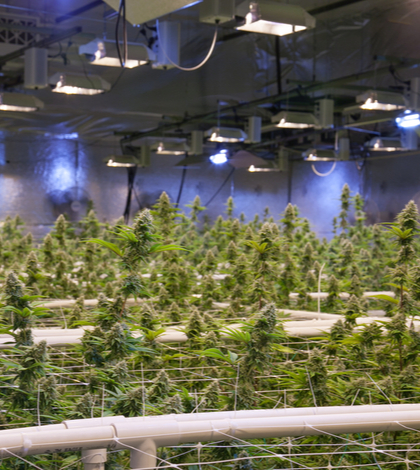Intent on protecting water flows and water quality in the state’s rivers and streams, the California State Water Resources Control Board adopted a new statewide policy for strict environmental standards for cannabis cultivation earlier this week. With California poised to allow the recreational use of marijuana for adults starting in January, the new policy protects California’s waters from cannabis-related waste discharges, protects stream flows and establishes protections for riparian areas and wetlands.
“We are establishing the environmental protection rules of the road needed to deal with the expected expansion of cannabis cultivation statewide,” said State Water Board Chair Felicia Marcus. “Today’s action creates a strict set of rules cannabis cultivators will need to follow in order to protect water quality and quantity. We will work closely with other state agencies to make sure cultivators are aware of these rules and are following them.”
Cannabis cultivation could pose serious threats to water quality and fish and wildlife by diverting water or releasing fertilizers, pesticides, and sediments into waterways if left unregulated. Commercial cannabis cultivation is expected to grow significantly and spread to new areas of the state following adult use legalization. The new Cannabis Cultivation Policy establishes statewide requirements that will be implemented through a water quality permit known as the Cannabis General Order and as conditions for cannabis-related water rights referred to as Cannabis Small Irrigation Use Registrations.
However, recent fires in Northern California have significantly impacted cannabis cultivation in the state. According to the Mercury-News, Hezekiah Allen, executive director of the California Growers Association, has reported that about 32 growers have reported “significant to complete” loss of their crops thus far from the fires. The statistics could increase as growers return to their farms and survey the damage. Although medical marijuana has been legal in California for more than two decades it remains federally illegal.
Even worse for marijuana growers, in light of the fire devastation in Northern California, is the inability to insure the cannabis fields. “There is no way to insure our cannabis crops, so whatever the loss is a loss,” said Susan Schindler of Potter Valley Farms in Mendocino County shared with the Mercury News.
The State Water Board’s Office of Enforcement has worked with the North Coast and Central Valley regional water boards and with the California Department of Fish and Wildlife (CDFW) a to address environmental impacts from cannabis cultivation since 2013. The new policy was developed in consultation with CDFW and the California Department of Food and Agriculture (CDFA). It will be incorporated into all commercial cannabis licenses issued by CDFA under its CalCannabis Cultivation Licensing Program.
The policy was adopted following a public review process earlier this year to solicit comments and feedback that included three workshops. The draft policy was released in early July, building on existing regulations developed by the North Coast and Central Valley regional water quality control boards. The new statewide policy replaces those regional regulations. The policy is expected to take effect sometime late in 2017 upon approval by the Office of Administrative Law.
The policy applies to cannabis cultivation and is specifically designed to address Proposition 215, the Compassionate Use Act, which established the medical cannabis industry, and Proposition 64, the Adult Use of Marijuana Act, which legalized recreational cannabis cultivation, and possession and use of limited amounts of cannabis by adults over 21 years of age. The policy does not apply to personal cultivation for recreational use. The State Water Board will continue its enforcement efforts, closely monitoring compliance with the new statewide policy and taking appropriate enforcement action when needed.
 California Water News Daily Your Source For Water News in California
California Water News Daily Your Source For Water News in California


